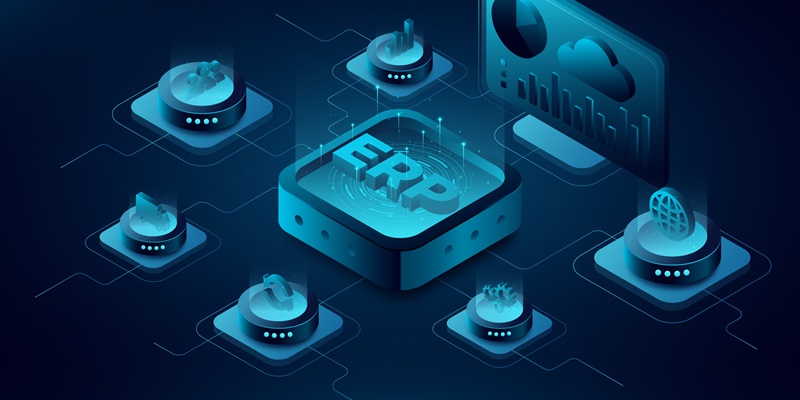In the fast-paced and data-driven business landscape, Enterprise Resource Planning (ERP) systems have become indispensable tools for streamlining operations and ensuring organizational efficiency. As the ERP market continues to grow and evolve, it is essential to stay updated with the latest trends and developments to stay ahead of the competition. In this article, we will explore the key factors shaping the future of ERP, including cloud-based solutions, AI and machine learning, mobile integration, user experience enhancements, predictive analytics, customized solutions, blockchain integration, IoT integration, seamless software integration, and sustainability features.
Cloud-based ERPs, such as Microsoft Dynamics 365 Business Central, are anticipated to dominate the ERP market by 2024. The shift towards cloud deployments offers numerous benefits, including cost-effectiveness, scalability, accessibility, and improved data security.
Revolutionizing ERP capabilities with AI and machine learning
Artificial Intelligence (AI) and machine learning are revolutionizing ERP systems by enhancing their analytical capabilities. With AI algorithms, ERP solutions can analyze vast amounts of data, automate processes, and even predict maintenance needs, thereby improving operational efficiency and reducing downtime.
Increasing popularity of mobile ERP solutions
In today’s mobile-centric world, businesses and employees require access to critical information anytime, anywhere. Mobile ERP solutions are gaining popularity due to their ability to provide real-time data, task management, and decision-making capabilities on mobile devices. This increased mobility empowers businesses to make informed and timely decisions while boosting productivity.
Focus on user experience (UX) in ERP systems
User experience (UX) is crucial for the adoption and success of ERP systems. Modern ERP systems prioritize intuitive and user-friendly interfaces, streamlined workflows, and personalized dashboards to enhance user satisfaction and productivity. By prioritizing UX, ERP solutions can ensure seamless navigation, reduced training time, and increased user adoption rates.
The role of predictive analytics in forecasting trends and outcomes is significant. Predictive analytics is a game-changer for businesses, and its integration into cloud-based ERP systems holds immense potential. With predictive analytics, ERP solutions can assess historical and real-time data to forecast future trends, anticipate customer demands, and optimize inventory levels, leading to better strategic decision-making and increased profitability.
Trend of customized ERP solutions for unique operational needs
Every business has its unique operational requirements, and customizable ERP solutions allow organizations to align systems with their specific needs. By tailoring ERP functionalities to their workflow, businesses can optimize processes, reduce complexity, and derive maximum value from their ERP investment.
Enhancing data security and transparency with blockchain integration
Data security and transparency are critical concerns in today’s digital landscape. Integrating blockchain technology into ERP systems can enhance data security by providing immutable and transparent records. It ensures data integrity, reduces fraud, and enables secure transactions between stakeholders.
IoT integration for real-time data and operational efficiency
The Internet of Things (IoT) is bridging the gap between physical assets and digital systems. Integrating IoT with ERP systems allows businesses to capture real-time data from connected devices and sensors. This enables proactive monitoring, predictive maintenance, and optimized resource allocation, leading to improved operational efficiency and reduced costs.
Importance of seamless integration with other critical software
ERP systems do not operate in isolation but must seamlessly integrate with other critical software, such as Customer Relationship Management (CRM) systems and e-commerce platforms. Real-time data synchronization and streamlined workflows between ERP and these systems ensure efficient and synchronized operations, allowing businesses to deliver exceptional customer service and achieve higher profitability.
Monitoring and managing environmental impact with sustainability features in ERP systems
In an era where sustainability is a key business objective, ERP systems have incorporated sustainability features to monitor and manage environmental impact. These features enable businesses to track energy consumption, waste generation, and carbon emissions, empowering them to make data-driven decisions to reduce their environmental footprint.
The ERP landscape is rapidly evolving, driven by advancements in cloud computing, AI and machine learning, mobile integration, seamless software integration, and cutting-edge technologies. Cloud-based ERPs are set to dominate the market, while AI, IoT, and predictive analytics are transforming ERP capabilities. Customization, user experience enhancements, blockchain integration, and sustainability features are also shaping the future of ERP. As businesses strive to stay competitive in the digital age, it is crucial to embrace these emerging trends and leverage ERP solutions to optimize operations, drive growth, and achieve strategic objectives.

